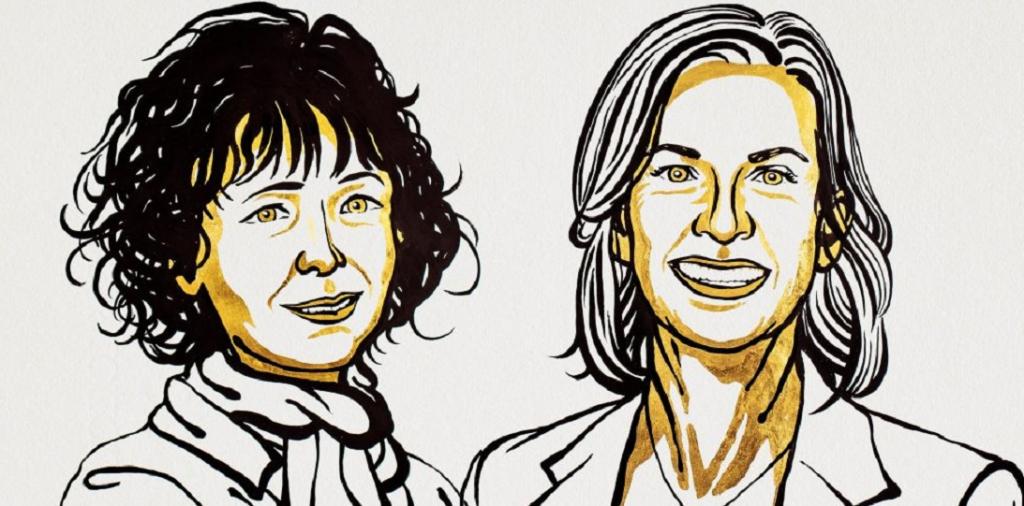

Emmanuelle Charpentier and Jennifer A Doudna have discovered one of gene technology’s sharpest tools



Frenchwoman Emmanuelle Charpentier and American Jennifer A Doudna have been awarded the 2020 Nobel Prize in Chemistry for developing ‘one of gene technology’s sharpest tools’, the Royal Swedish Academy of Sciences said October 7, 2020.
The CRISPR / Cas9 genetic scissors developed by Charpentier and Doudna can be used to change the deoxyribonucleic acid (DNA) of animals, plants and microorganisms with extremely high precision, the Academy’s statement said.
This technology has had a revolutionary impact on the life sciences. It was contributing to new cancer therapies. It might make the dream of curing inherited diseases come true, the statement added.
The discovery of the ‘genetic scissors’ was serendipitous. Charpentier, while studying the Streptococcus pyogenes, a bacterium that causes the most harm to humanity, discovered a previously unknown molecule, tracrRNA.
Her work showed that tracrRNA was part of bacteria’s ancient immune system, CRISPR/Cas, that disarmed viruses by cleaving their DNA.
Charpentier published her discovery in 2011. The same year, she initiated a collaboration with Jennifer Doudna, an experienced biochemist with vast knowledge of ribonucleic acid.
Together, they succeeded in recreating the bacteria’s genetic scissors in a test tube and simplifying the scissors’ molecular components so they were easier to use.
The duo then reprogrammed the genetic scissors. In their natural form, the scissors recognise DNA from viruses, but Charpentier and Doudna proved that they could be controlled so that they can cut any DNA molecule at a predetermined site. Where the DNA is cut, it is then easy to rewrite the code of life.
The use of CRISPR / Cas9 genetic scissors has exploded since its discovery in 2012. It has contributed to many important discoveries in basic research.
Plant researchers have been able to develop crops that withstand mould, pests and drought. In medicine, clinical trials of new cancer therapies are underway and the dream of being able to cure inherited diseases is about to come true, the Academy said.
Charpentier works at the Max Planck Unit for the Science of Pathogens, Berlin, Germany, while Doudna works at the University of California, Berkeley in the United States. The two recipients will share 10 million Swedish kronor of the prize money between them.
We are a voice to you; you have been a support to us. Together we build journalism that is independent, credible and fearless. You can further help us by making a donation. This will mean a lot for our ability to bring you news, perspectives and analysis from the ground so that we can make change together.

Comments are moderated and will be published only after the site moderator’s approval. Please use a genuine email ID and provide your name. Selected comments may also be used in the ‘Letters’ section of the Down To Earth print edition.